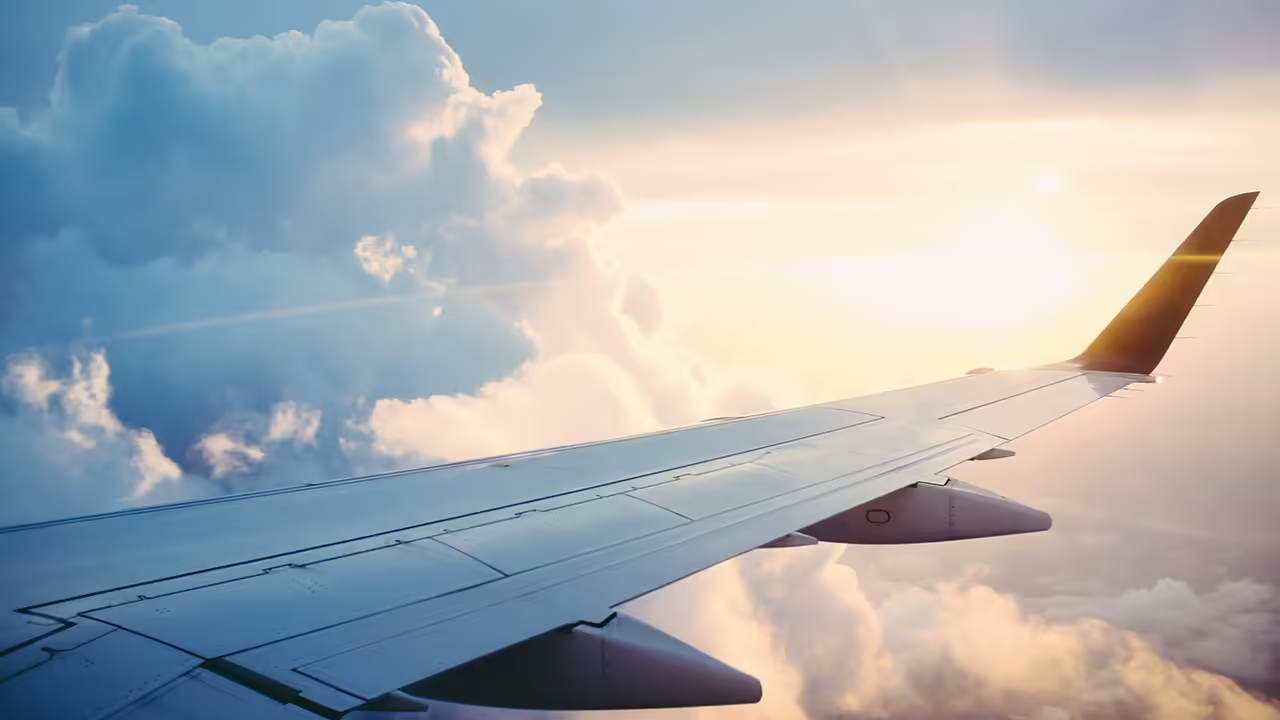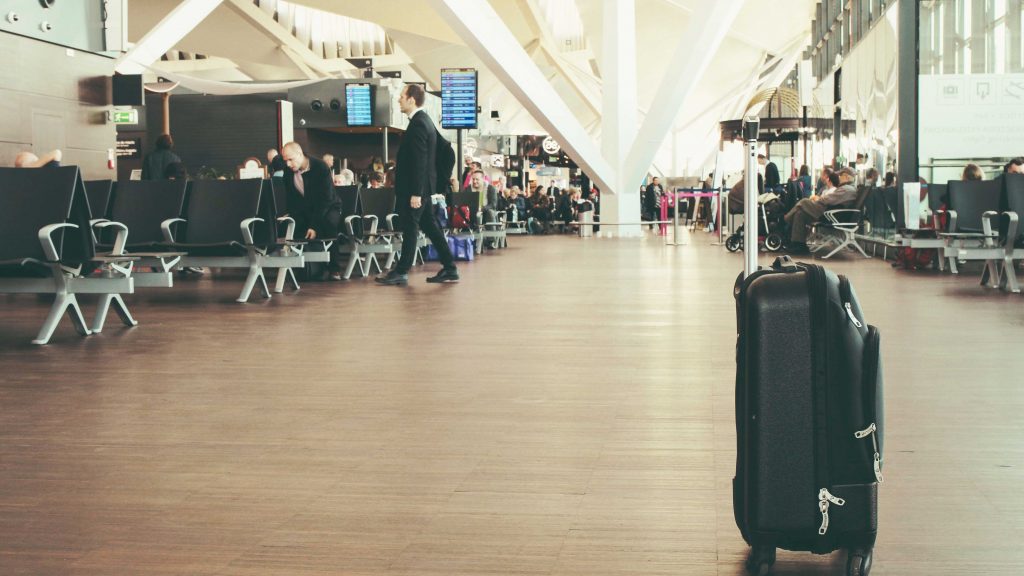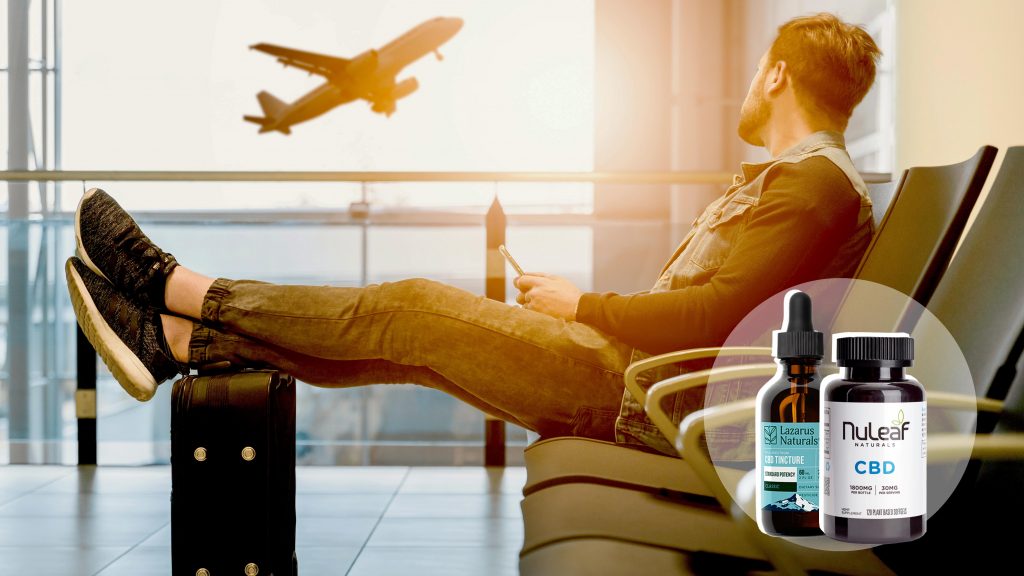Tips to Help Frequent Flyers Stay Healthy
Summarize

People with an adventurous spirit like to travel frequently but are also at risk of developing health problems related to their travel. People get sick during and after their trips. There is a 50% chance a traveler will experience an illness while traveling overseas. Up to 80% of travelers get sick after returning home. While no one wants to think about falling ill during or after a trip, you can follow healthy travel tips to minimize the risks, including seeing a doctor before leaving, staying hydrated and being cautious about the food and beverages consumed.

TL;DR (Too Long; Didn’t Read):
Staying healthy while traveling means taking care of your mental and physical well-being and minimizing the risks of getting sick. Some healthy travel tips include seeing a doctor for appropriate vaccinations, learning the type of foods and beverages to avoid, avoiding alcohol while flying, staying hydrated, keeping exercise in your routine and more. In addition, taking CBD may promote feeling of rest.
Nine Travel Wellness Tips for Flyers
Staying healthy while traveling is challenging because your sleep, exercise, and dietary routines are disrupted. You are around large crowds at airports and local sites and will try new foods and drinks at your destination. If you are traveling to a developing nation, your risks of getting sick are higher, but it is important to follow travel wellness tips no matter your destination. Whether traveling overseas or to another state, there are things you can do to reduce the risk of falling ill during and after your trip.
1. Schedule a doctor’s appointment
Approximately 12% of American adults see a doctor before traveling internationally. The CDC recommends seeing a doctor at least one month before you leave on your trip. The doctor can review your itinerary and make recommendations for the appropriate vaccines.
International travel makes you particularly susceptible to serious diseases uncommon in the United States, like typhoid fever, especially if visiting a developing country. The World Health Organization has a travel advice page providing current information on viruses by country.
2. Choose foods and drinks carefully
One of the frequent flyer tips that is simple to follow suggests packing healthy snacks to eat on the plane instead of eating plane food. Eating light foods can help you avoid getting nauseous and help you avoid drinking alcohol.
Travelers are cautioned to remember a few rules about eating out in a foreign country. You should eat only at healthy-looking restaurants and never eat raw foods, including fruits and vegetables. You want to avoid unpasteurized milk or dairy products, shellfish or food from street vendors unless a health department has certified the vendor.
Meats eaten in any country should be cooked well-done. It is best to drink only bottled beverages because bacteria differ in each country, and your system is adapted to the bacteria in the U.S. This means avoiding even ice cubes in foreign countries. Poorly prepared foods and untreated water are the leading causes of gastrointestinal diseases.
3. Avoid alcohol while flying
Drinking alcohol while flying is not recommended for several reasons. One is that alcohol combined with less oxygen at high altitudes will lower your blood oxygen levels and increase your heart rate, straining your cardiovascular system. Older people or those with lung or heart disease are particularly at risk of experiencing serious health effects.
4. Stay hydrated
Staying hydrated is a simple and effective travel wellness tip. Clinical research has found that long flights lead to fluids shifting to the lower extremities and causing changes in blood viscosity. This accelerates dehydration. Dehydration causes light-headedness or dizziness, muscle cramps and dry mouth. Dehydration is easily prevented by regularly sipping water throughout the trip and avoiding alcohol and coffee during a flight.

5. Use CBD products
CBD oil may help travelers experience less discomfort. Aerophobia (or aviophobia) is common, with over 25 million American adults having a fear of flying. People with travel fear being in an unfamiliar place or interacting with strangers. They might feel overwhelmed by travel arrangements, purchasing tickets, or booking hotel rooms.
Clinical studies have found that CBD has calming effects due to its interaction with the endocannabinoid system. A study involving 374 participants found broad spectrum and isolate CBD helped them feel a sense of ease, with the broad spectrum CBD rated higher. This suggested that the cannabinoids working synergistically maximize the benefits.
6. Get plenty of sleep while traveling
Traveling is not just about seeing and doing as much as possible. Sleep is a crucial part of staying healthy while traveling. Crossing time zones disrupts your circadian rhythm, leading to difficulty sleeping and fatigue, which are symptoms of jet lag. Sleep is also disrupted due to unfamiliar sleeping environments, changes to diet and exercise routines and changes in a daily schedule.
Sleep deprivation reduces cognitive abilities and energy levels. But more than that, sleep is essential for a healthy immune system. During sleep, some types of immune cells become more active, and hormone releases are managed based on your sleep pattern. So, make sure to prioritize sleep during your travels.
7. Move around while flying
Moving around while on a long flight is important to maintaining blood flow in the legs. Some people are susceptible to blood clots, so getting up and moving around every 1-2 hours is recommended. Also, regularly do seated exercises like flexing and extending your ankles, which exercises the calf muscles, and try not to cross your legs.
8. Exercise wherever you are
It is important to continue exercising while on a trip, and there are many ways to fit exercise into your agenda. For example, you can walk laps around the airport between flights. To stay healthy, go walking, hiking or biking at your destination, and take advantage of hotel gyms and pools. There are mobile phone exercise apps that can guide you in completing hotel room exercises and monitor steps taken. Exercise can help you regulate sleep, reduce the effects of jet lag and maintain energy levels.
9. Regularly wash your hands
Regularly washing your hands with soap and water for 15-30 seconds or using hand sanitizer with 60% alcohol can help remove germs that can cause illnesses and infections, especially respiratory and diarrheal infections. Avoid touching your face or rubbing your eyes because the eyes, nose and mouth offer easy entry for germs. Also, wash your hands before eating or drinking anything so you do not inadvertently contaminate food or drinks.
Stay Healthy and Enjoy Your Travels
Staying healthy while traveling is about using common sense to protect your wellness, like staying hydrated and taking simple steps to avoid viruses, bacteria and other contaminants. You can also boost your wellness efforts by taking advantage of CBD products that may support better sleep. Staying healthy while flying and then at your destination ensures your trip is enjoyable from beginning to end.
Sources
- https://www.betterhealth.vic.gov.au/health/healthyliving/travel-health-tips
- https://weillcornell.org/news/feeling-sick-after-vacation-is-more-common-than-you-might-think
- https://www.ncbi.nlm.nih.gov/pmc/articles/PMC7695092/
- https://wwwnc.cdc.gov/travel/page/survival-guide
- https://www.nfid.org/travel-vaccines-know-before-you-go/
- https://www.who.int/travel-advice
- https://www.betterhealth.vic.gov.au/health/healthyliving/Food-safety-while-travelling
- https://www.jwatch.org/na57704/2024/07/11/health-hazards-sleeping-and-drinking-long-haul-flights
- https://www.ncbi.nlm.nih.gov/pmc/articles/PMC7551461/
- https://my.clevelandclinic.org/health/diseases/22431-aerophobia-fear-of-flying
- https://www.ncbi.nlm.nih.gov/pmc/articles/PMC9491383/
- https://www.ncbi.nlm.nih.gov/pmc/articles/PMC10629851/
- https://pubmed.ncbi.nlm.nih.gov/33215831/
- https://www.nhlbi.nih.gov/health/sleep/why-sleep-important
- https://www.nhlbi.nih.gov/health/venous-thromboembolism/preventing-blood-clots
- https://healthy.kaiserpermanente.org/health-wellness/health-encyclopedia/he.quick-tips-staying-active-when-you-travel.zx3465
- https://www.cdc.gov/clean-hands/data-research/facts-stats/index.html
Share this post



0